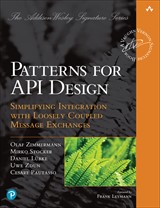
Published: 27 January 2024
Known Uses
Service Level Agreements (SLAs) are frequently incorporated into the terms and conditions of services, as denoted in the API Description itself (under “termsOfService” and contact details) within Dutch Government APIs. As legally binding documents, terms and conditions, along with SLAs for public APIs, are drafted, or at least reviewed and approved, by legal experts specializing in the field. However, they often manifest as unstructured and freeform texts, as outlined in the book on page 417.
In Dutch Energy sector the SLA is described in the Service Description Documentation (API user manual that provides service context information, usage examples, details on error handling, etc.) and the following service-level objectives are defined:
- Response times
- Availability
- Uptime and peak load
- Security
- Confidentiality
- Helpdesk availability (service window)
There are no examples where failing to meet an SLA could result in negative financial consequences or punitive penalties (as far as we know).
Examples
Two examples in our domains are:
- https://www.logius.nl/domeinen/gegevensuitwisseling/digikoppeling/documentatie/serviceniveau-overeenkomst (in Dutch)
- https://www.logius.nl/domeinen/interactie/mijnoverheid/documentatie/serviceniveau-overeenkomst-mijnoverheid (in Dutch)
As correctly stated on api-patterns.org: “…many public cloud providers have explicit SLAs…”, the following can be added:
- https://www.ibm.com/support/customer/csol/terms/?id=i126-9268&lc=en
- https://www.twilio.com/en-us/legal/service-level-agreement
Discussion Input
In particular, when considering risk and accountability, notable differences exist between SLAs in the public and private sectors. Public sector SLAs typically encompass risk management associated with public interest, political implications, and adherence to public policy, necessitating elevated levels of accountability and transparency. Conversely, within the private sector, SLAs primarily center on managing financial risks, navigating market competition, and meeting the expectations of shareholders or investors.
Recommended Reading
ISO/IEC 19086-1 sets a framework to enhance the quality, reliability, and transparency of cloud Service Level Agreements aiming to improve the confidence and trust between cloud service providers and their customers: https://www.iso.org/standard/67545.html.

Read the complete pattern on api-patterns.org